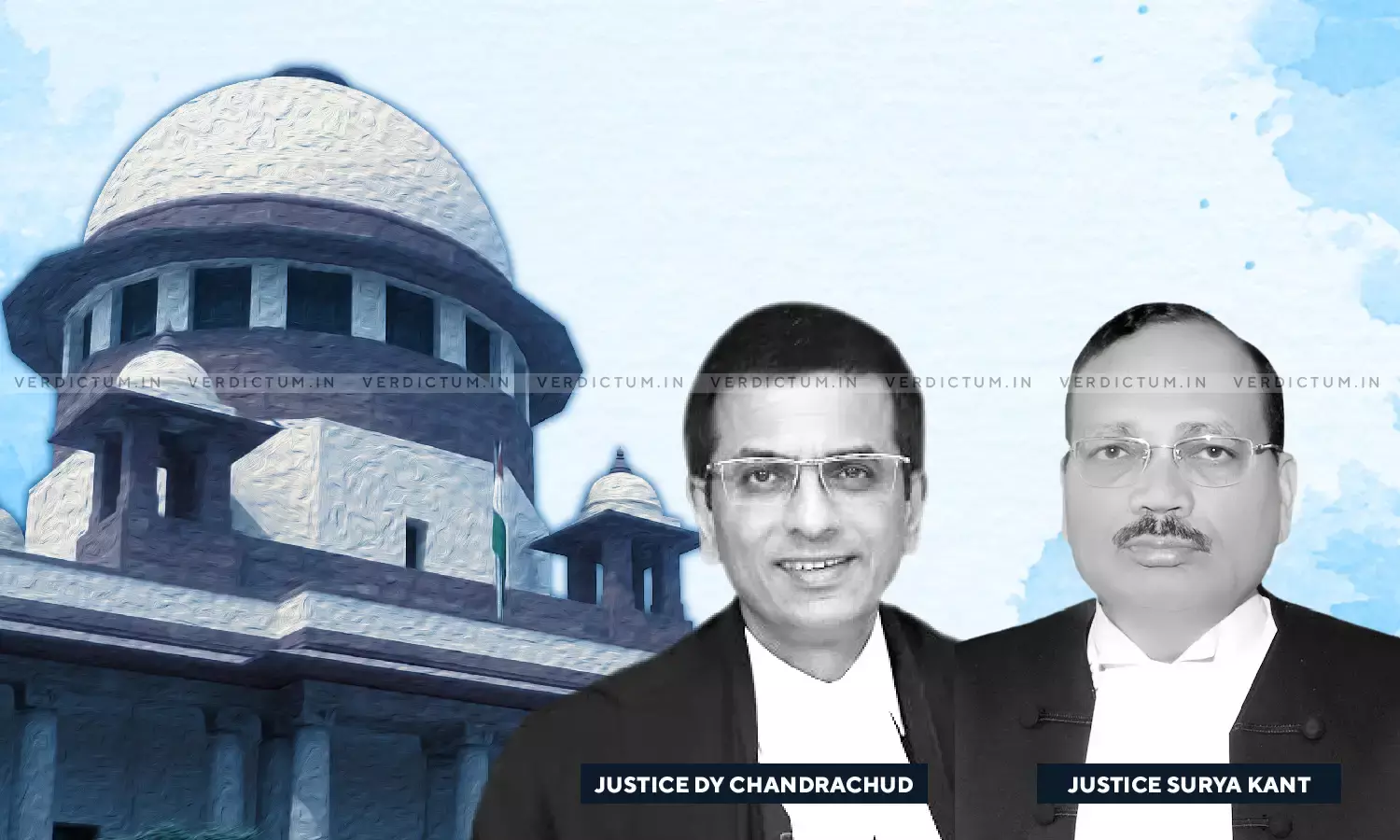Acquittal In Criminal Case Would Not Debar Employer From Exercising Disciplinary Jurisdiction - Supreme Court
A two-judge Bench of Justice D Y Chandrachud and Justice Surya Kant while setting aside a judgement of Karnataka High Court has held that acquittal by a criminal court would not debar an employer from exercising the power to conduct departmental proceedings in accordance with the rules and regulations.
In this case, Umesh, the respondent was working as a Village Accountant at Revathagao in Indi Taluka of Bijapur District in Karnataka. The charge against the respondent was that he demanded a bribe from a person. A criminal complaint was registered with the Lokayukta police against the respondent for the commission of an offence punishable under Sections 7 and 13(1) (d) read with Section 13 (2) of the Prevention of Corruption Act 1988. Later by a judgment the Special Judge gave the benefit of doubt to the respondent and acquitted him of all charges.
Further an order by the Lokayukta held that the charge against the respondent was proved and recommended the penalty of compulsory retirement from service under Rule 8(vi) of the Karnataka Civil Services (Classification, Control and Appeal) Rules 1957 (1957 Rules). Aggrieved by the penalty Umesh moved to Karnataka Administrative Tribunal (KAT).
Further against the order of KAT, a writ petition under Article 226 was filed to High Court and the principal issue was whether the order of the Disciplinary authority in holding the petitioner guilty of charges despite a finding by a criminal Court acquitting him of similar charges on the basis of a similar set of evidence was justified.
The petition was allowed by the High Court.
The appeal before the Supreme Court arose against a judgment of the Division Bench of the Karnataka High Court. The High Court set aside the judgment of the Karnataka Administrative Tribunal directing the compulsory retirement of the respondent from service following a disciplinary enquiry on charges of bribery.
Mr. V N Raghupathy, Counsel for the appellant submitted that an acquittal in a criminal proceeding will not preclude the exercise of the jurisdiction of the disciplinary authority in a departmental enquiry in view of the consistent position of law while Mr. Ashwin V Kotemath, Counsel, on the other hand, has urged that the finding of misconduct was without any application of mind and is perverse.
The Apex Court placed reliance upon Karnataka Power Transmission Corporation Ltd. v. C. Nagaraju in which it was held that acquittal by a criminal court would not debar an employer from exercising the power to conduct departmental proceedings in accordance with the rules and regulations. The two proceedings, criminal and departmental, are entirely different. They operate in different fields and have different objectives.
Further, the Supreme Court held that the principles which govern a disciplinary enquiry are distinct from those which apply to a criminal trial. Unlike a criminal prosecution where the charge has to be established beyond a reasonable doubt, in a disciplinary proceeding, a charge of misconduct has to be established on a preponderance of probabilities and the rules of evidence that apply to a criminal trial are distinct from those which govern a disciplinary enquiry.
The Court further held that in the exercise of judicial review, the Court does not act as an appellate forum over the findings of the disciplinary authority. The court does not re-appreciate the evidence on the basis of which the finding of misconduct has been arrived at in the course of a disciplinary enquiry.
The Apex Court allowed the appeal and set aside the order of the High Court and restored the finding of misconduct and the punishment of compulsory retirement.
Click here to read/download the Judgment




